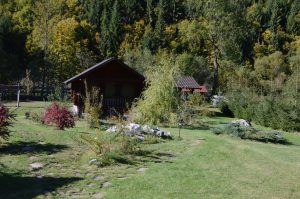In recent years, the rise of survivalism has sparked a growing interest in the human psyche and what compels individuals to prepare for potential disasters. Survivalism, often characterized by self-sufficiency, community building, and readiness for emergencies, goes beyond mere hobbies or interests; it reflects a deep-seated need for security and control in an unpredictable world. Understanding the psychology behind survivalism provides insight into the motivations that drive many individuals to adopt this lifestyle.
The Root Causes of Survivalism
1. Instinctive Survival Mechanisms
At its core, survivalism taps into the instinctual human drive for survival. Evolutionarily, our ancestors survived by being prepared for threats—be it natural disasters, famine, or attacks from predators. This primal urge can manifest today as a proactive approach, where individuals seek to equip themselves against perceived threats. This instinct can be accentuated by traumatic events, such as natural disasters or societal upheavals, leading individuals to take their safety into their own hands.
2. Perception of Threats
In our hyper-connected world, information travels rapidly, often highlighting societal instabilities—economic crises, pandemics, climate change, and geopolitical tensions. The constant barrage of news can lead to heightened anxiety and a feeling that the world is increasingly unsafe. For many, survivalism becomes a rational response to this perceived danger, reflecting a desire to mitigate fear and regain a sense of agency in the face of uncertainty.
3. Psychological Resilience and Control
Survivalism is often linked to the human need for autonomy and control. By preparing for emergencies, individuals can combat feelings of helplessness and anxiety associated with unexpected crises. Engaging in survivalist practices—such as hoarding supplies, learning new skills, or building community networks—fosters a sense of preparedness that can enhance psychological resilience. The ability to respond to challenges not only provides confidence but can also improve mental health by reducing feelings of anxiety and helplessness.
4. Community and Belonging
Survivalism often fosters a strong sense of community. Those drawn to this lifestyle frequently connect with like-minded individuals, forming networks of support and shared values. This social dimension is crucial; belonging to a community can amplify feelings of safety and security. The emotional bonds formed through shared experiences and knowledge exchange provide social support, further reinforcing survivalist tendencies.
5. Cognitive Dissonance and Rationalization
For many, the decision to adopt a survivalist mindset can lead to cognitive dissonance—an internal conflict arising from holding two contradictory beliefs. The desire for a normal life juxtaposed against the realities of potential disasters can create anxiety. However, the rationalization of survivalism as a practical and sensible choice helps alleviate this dissonance, allowing individuals to justify their preparations and lifestyle choices.
The Impact of Digital Media
The rise of the internet and social media has played a pivotal role in the survivalism movement. Online communities provide platforms for sharing knowledge, resources, and experiences, making it easier for individuals to engage with survivalist concepts. This digital connectivity has created a feedback loop where fears and survivalist tendencies are amplified, reinforcing the desire to prepare and seek out information on self-sufficiency.
Conclusion
The psychology of survivalism encapsulates a complex interplay between instinctual behaviors, societal pressures, and personal motivations. Driven by a combination of innate survival instincts, perceptions of threat, the need for control, and a desire for community, survivalism is as much about preparedness as it is about psychological well-being. As global uncertainties continue to shape our world, understanding these motivations can foster compassion for those who choose to embrace survivalism, highlighting a collective human desire to seek safety and security in an unpredictable landscape.




